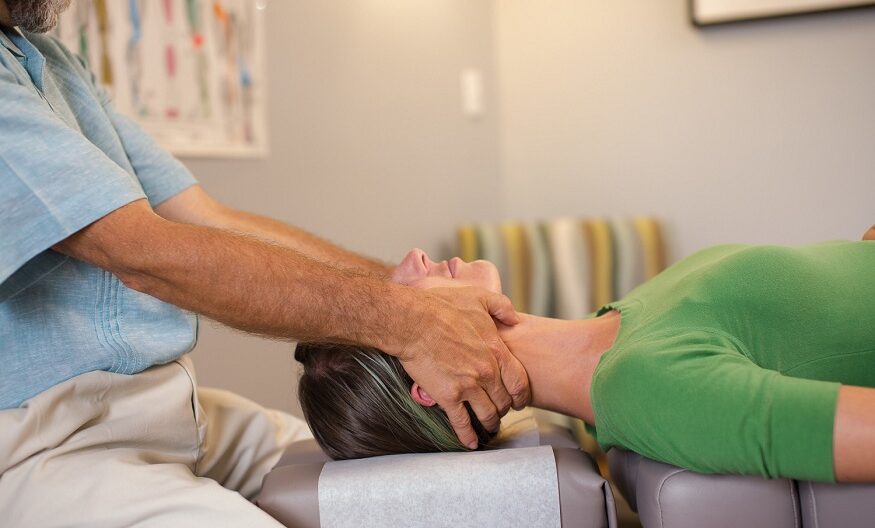
A migraine headache can be debilitating, causing throbbing head, eyes, and ears pain, nausea, and extreme sensitivity to light and sound. The typical medical treatment combines preventive medications, pain relievers, and anti-nausea medicines. Chiropractic treatment, such as spinal manipulation and soft tissue therapy, has been shown to provide significant relief for headaches and migraines without the side effects of medication.
Lifestyle Changes
For many migraine sufferers, lifestyle changes can help to relieve symptoms. These include getting enough sleep (not too much or too little), eating healthy meals, exercising regularly, and reducing stress levels. A chiropractor can also offer lifestyle advice, such as improved posture and work ergonomics, to help reduce the tension in neck muscles that can cause headaches. They can also recommend exercises, such as deep neck flexion exercises, which involve flexing your neck muscles against resistance. The sound you hear when your chiropractor performs these is similar to cracking your knuckles caused by gas released in the joints. Frequently affecting women more than males, migraines are a prevalent ailment that can be crippling. Chiropractic therapy can help ease your symptoms and get you back to living your life to the fullest if you’re experiencing these incapacitating headaches. Consult your doctor about adding chiropractic adjustments to your treatment regimen. For more information, visit Brad Kern.
Spinal Adjustments
Chiropractic adjustments are an effective way to realign joints and decrease pain and stiffness. They can also aid in easing pain and enhancing joint mobility. They can also help with dizziness and vertigo. In addition, chiropractic adjustments can help you maintain your balance and enhance the function of soft tissues like muscles. Chiropractors use various methods to perform spinal manipulation, including the Activator adjusting technique, which uses a hand-held mechanical instrument with a thumb-activated actuator to provide a gentle but directional impulse that restores motion to the targeted vertebrae. They also use the Diversified technique, which involves specific manual thrusts to restore spinal alignment.
When performed by a chiropractor, spinal adjustments can help relieve back and neck pain and headaches. The procedure involves controlled pressure on a particular joint with a precise amplitude and velocity, which allows the fluids in the joints to flow freely, improving spinal movement and overall body function. This treatment may produce a cracking or popping sound due to the release of gases in the joint.
Soft Tissue Therapy
Soft tissue therapy can relieve pain and tenderness depending on the type of headache or migraine you suffer. This therapy includes stretching and myofascial release to remove trigger points and increase the flexibility of muscles in your neck, shoulders, and head. This technique is also helpful for fibromyalgia and reducing the symptoms of carpal tunnel syndrome. This type of treatment effectively promotes healthy blood flow and reduces inflammation.
Another common cause of headaches and migraines is sinus issues. A chiropractor can offer sinus relief by adjusting the upper cervical spine, which can help your throat relax and allow the sinus passages to drain correctly. Many factors, including food and drink, can trigger migraines. A chiropractic practitioner can recommend changes to diet and nutrition that will reduce the likelihood of migraine attacks. They can also assist you in controlling your stress levels to prevent headaches and migraines.
Acupuncture
While many people rely on over-the-counter or prescription headache medications, these may be ineffective or cause dangerous side effects. A skilled chiropractor can help relieve pain by correcting spinal misalignments contributing to headaches. They also perform soft tissue therapy, such as myofascial release, to improve posture and reduce tension, which may ease headaches. Spinal manipulation is a manual therapy in which the chiropractor applies controlled force to specific spine joints, usually those in the neck. It may be done using hands or specialized tools, often creating a popping noise. This technique helps to ease pain and improve mobility by releasing compressed nerves that send pain signals to the brain. Acupuncture is another method that helps to relax muscles, improve circulation, and reduce pain. It is effective for cervicogenic headaches, which are caused by tension in the neck muscles. It also works for migraines, characterized by throbbing or drilling pain that affects one side of the head.
